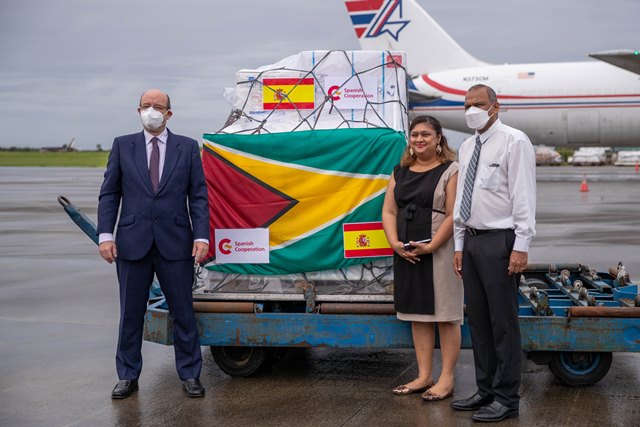
Guyana has received a shipment of 52,800 doses of the Pfizer vaccines for children ages five to eleven years old, preparing the country for the first-time administration of the vaccine to that age cohort.
The vaccines were donated by the Government of Spain and will be administered to 26,400 children in a two-dose schedule. They were officially handed over by Ambassador to Guyana, H.E, Fernando Nogales Alvarez, to Minister of Health Dr. Frank Anthony on June 6.
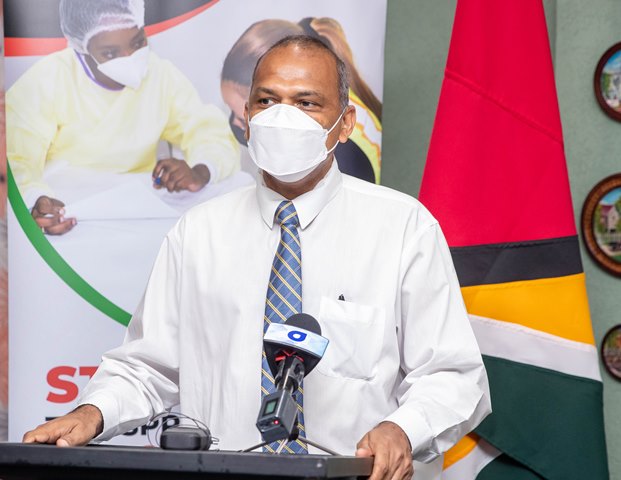
Government has been promoting the vaccination of the under 12 age cohort, which has been recommended by the World Health Organisation (WHO).
“There is a myth, that children don’t get covid, but when you look at our statistics, the 60 something thousand persons that would have been infected over this period about 1/3 of them would have been children,” Dr. Anthony said as he urged parents to ensure their children are vaccinated.

“We are starting on Saturday and then we will collaborate more closely with the ministry of education to roll this out in different schools but we are really dependent on parents to make sure they give us permission so that we can do this vaccination,” he noted.
Dr. Anthony reminded that the vaccine prevents severe illnesses and long-covid.
Minister of Education, Priya Manickchand, who was also present to receive the donation, said the vaccines are a ‘valuable gift.’
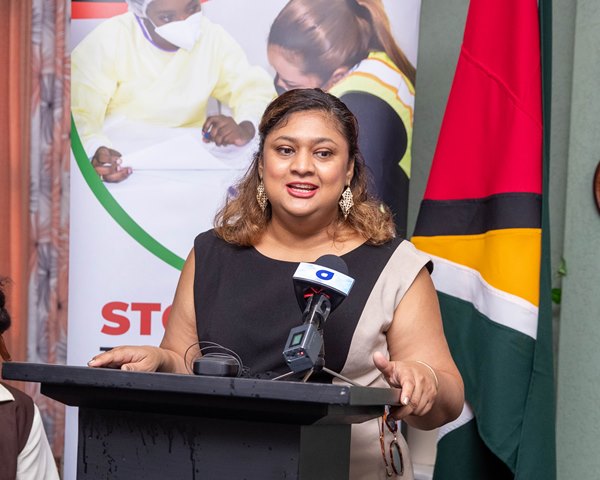
“Vaccines will remain voluntary, so to all the parents listening to us, vaccines will continue to be voluntary, and we are not insisting that anyone takes the vaccine but we are encouraging you strongly to pay attention to the data,” Minister Manickchand reassured parents.
“Most of us want better for our children that we want for ourselves and I urge you to consider strongly getting your children vaccinated with this vaccine, there are limited doses and they will finish and so an early decision will be required,” she added.
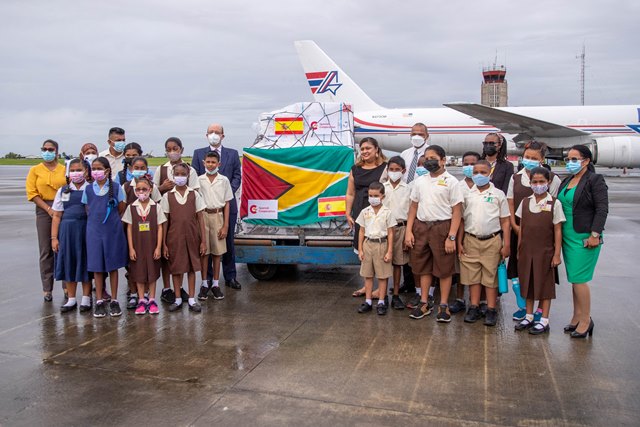
Guyana is one of the first countries in the region to access these vaccines, as there is a global shortage. Minister Anthony said the shots will be administered on a ‘first come first served’ basis.
Dr. Anthony noted that based on the uptick among children, efforts will be made to access more vaccines.
Ambassador Nogales Alvarez noted that the donation is part of a worldwide effort by Spain with unanimous support from parliament and society.
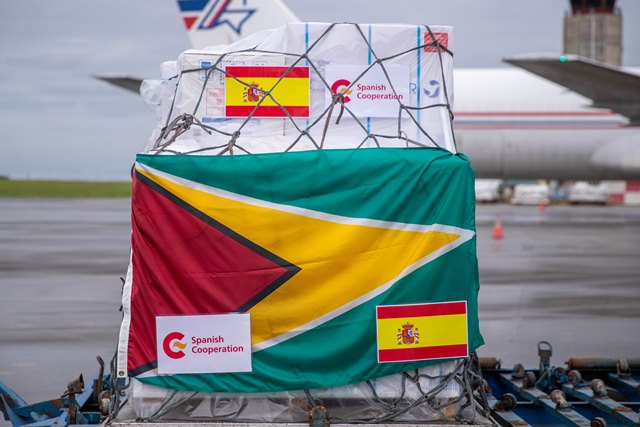
“The first phase of the pandemic was truly hard for Spain and out of that feeling of despair of not knowing what was happening there emerged the very intense desire, that whenever a solution could be ready that we have to share it with those who needed it most,” the Ambassador said.

